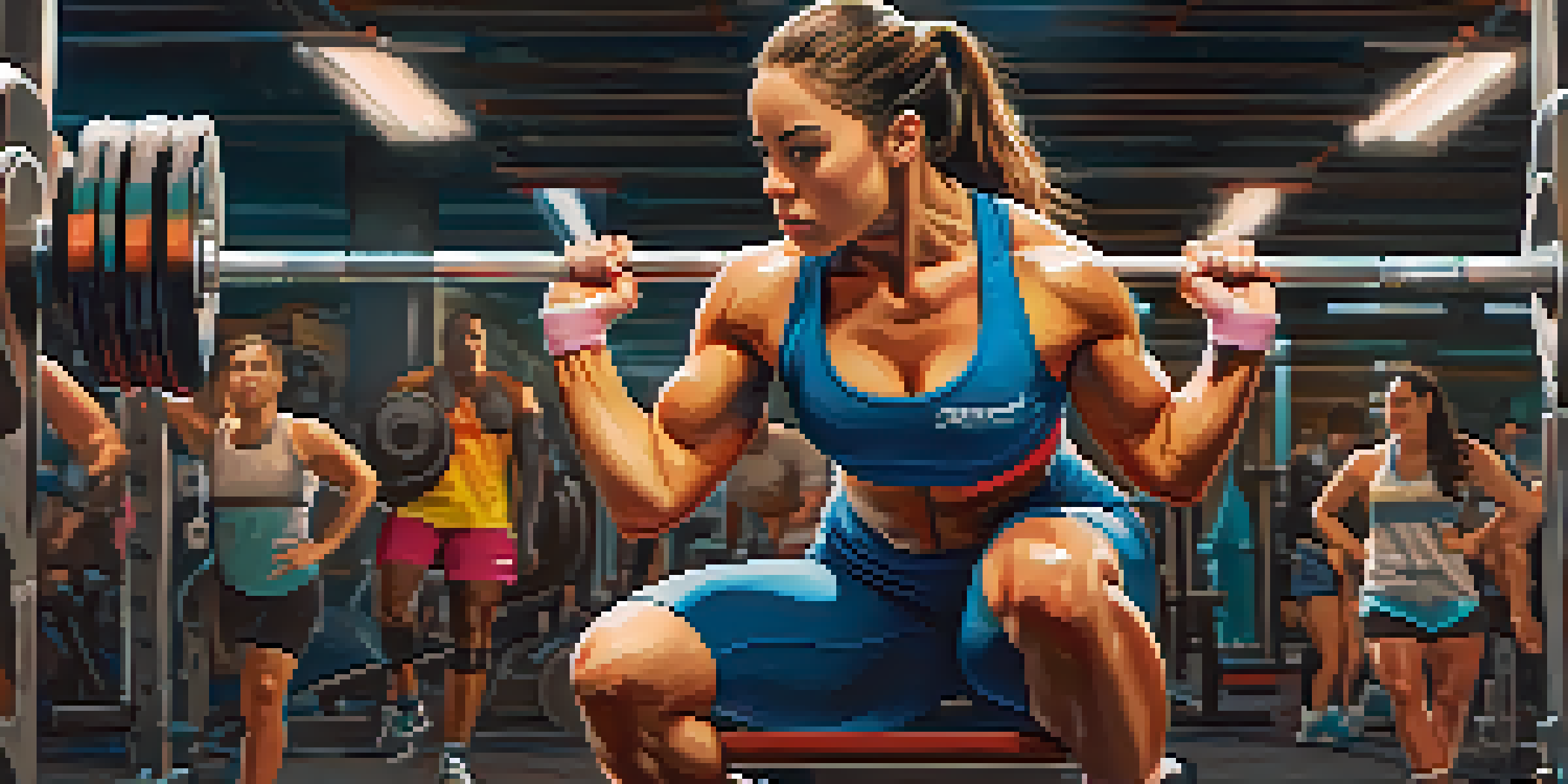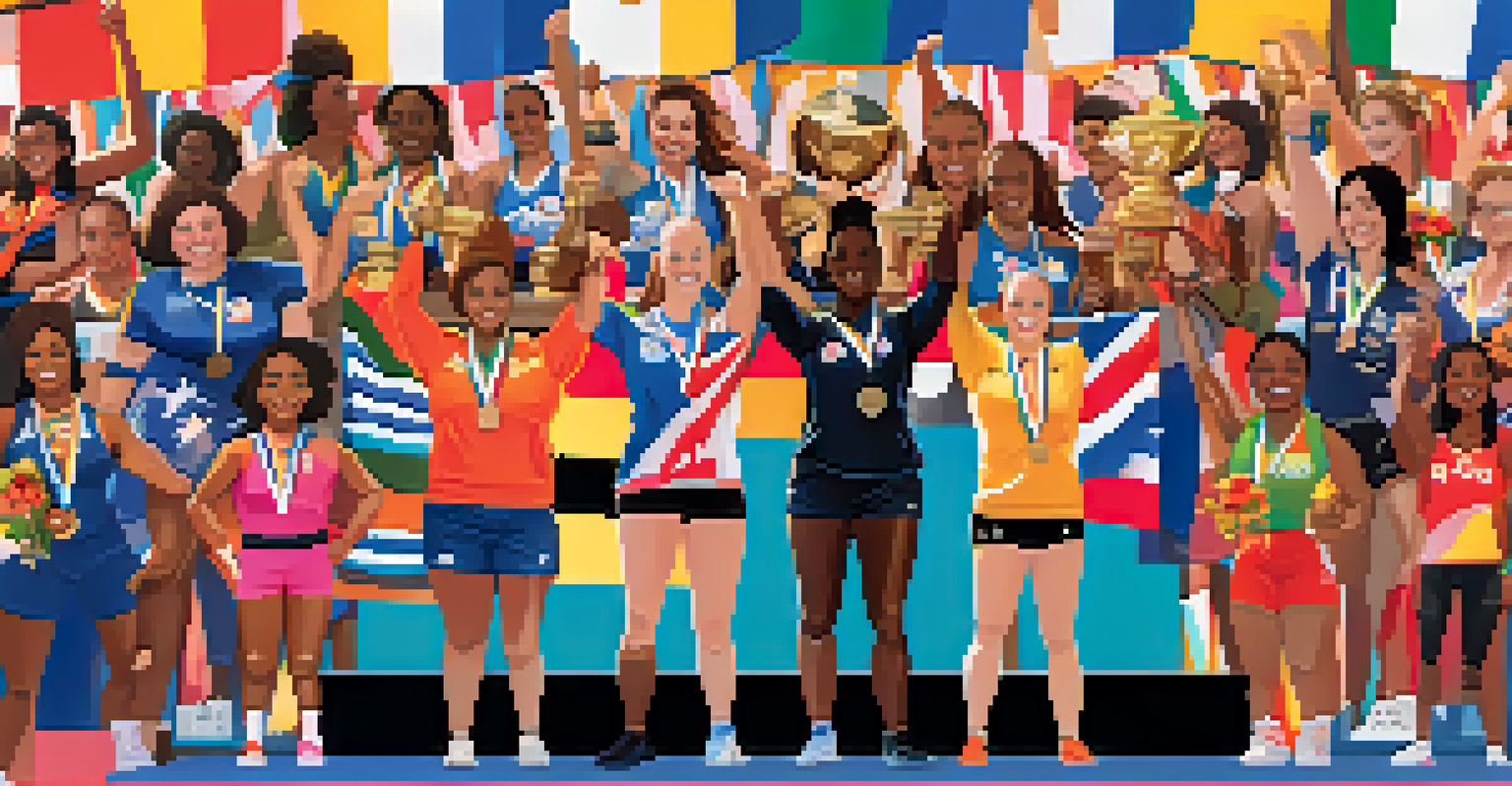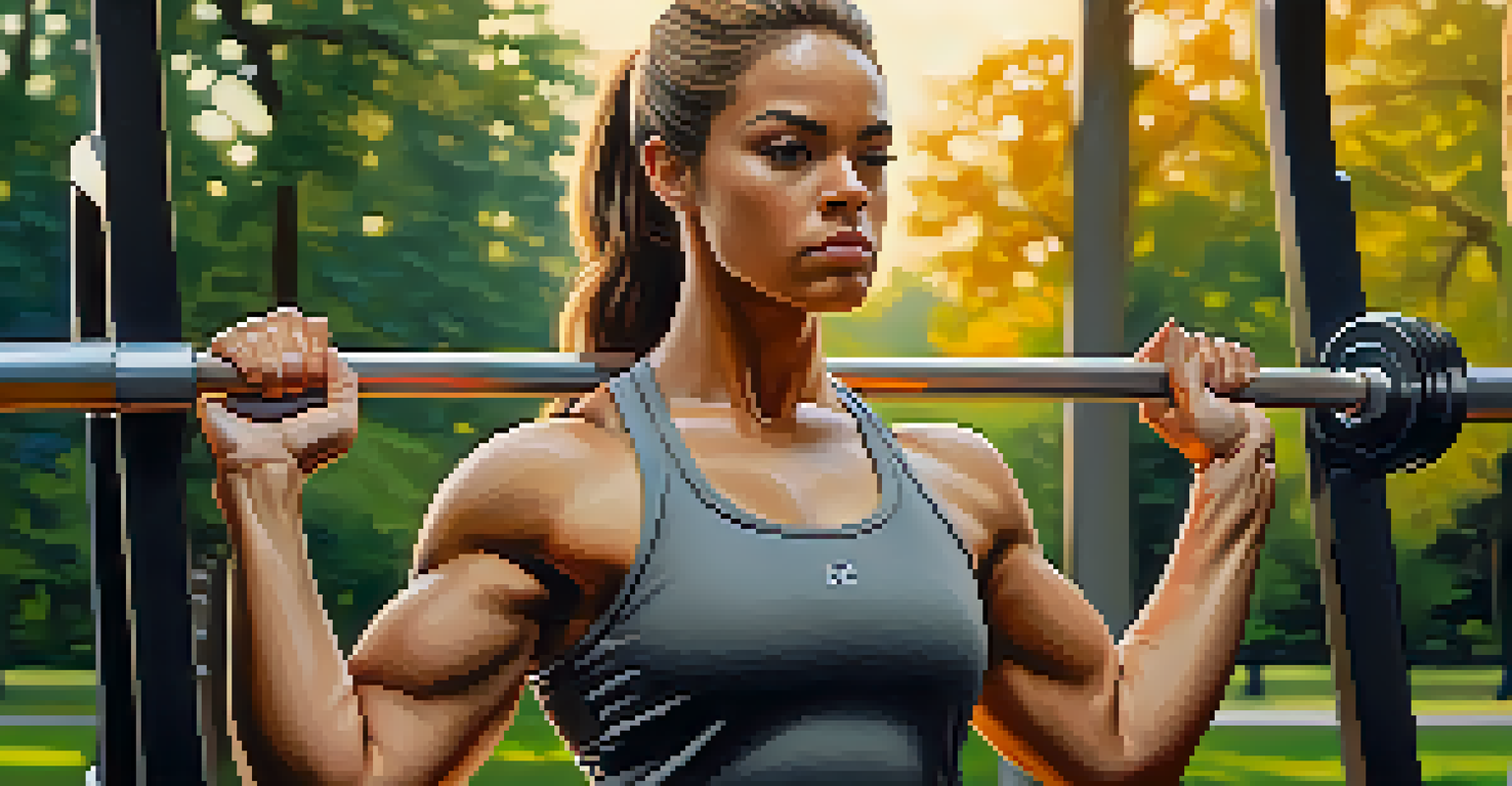Breaking Stereotypes: Women Redefining Powerlifting Norms

Challenging Traditional Views of Strength and Femininity
For decades, strength has often been equated with masculinity, leaving women to navigate a complex web of societal expectations. This stereotype not only undermines women's capabilities but also discourages many from pursuing strength sports like powerlifting. However, more women are stepping into the spotlight, demonstrating that strength isn't confined to gender norms.
The strongest women are those who lift each other up.
The rise of female powerlifters is a testament to this shift. Athletes like Jen Thompson and Stefi Cohen have not only broken records but also shattered the misconceptions surrounding women and weightlifting. Their achievements inspire countless others to challenge outdated perceptions and embrace their own strength.
As women continue to redefine what it means to be strong, they are also reshaping the narrative around femininity. Strength is no longer viewed as an antithesis to femininity but rather as an integral part of it, allowing women to celebrate their power while embracing their identities.
The Empowering Community of Female Powerlifters
Powerlifting isn't just about individual accomplishments; it thrives on community support, and women are leading the charge. Female lifters often create supportive networks that encourage each other to push boundaries and celebrate successes, big and small. This camaraderie fosters an environment where women can thrive without fear of judgment.

Social media has played a pivotal role in connecting female lifters globally. Platforms like Instagram and TikTok are filled with inspiring stories, training tips, and personal journeys, allowing others to witness the strength and determination of women in the sport. This visibility not only empowers individuals but also attracts newcomers to the community.
Redefining Strength for Women
Women are challenging traditional views of strength, showing that powerlifting can be an integral part of femininity.
Moreover, initiatives and organizations specifically aimed at women in powerlifting are emerging. These groups offer training programs, mentorship, and resources tailored to support women at every level, further solidifying powerlifting as an inclusive space where women can shine.
Breaking Barriers: Representation in Powerlifting
Historically, women have been underrepresented in many sports, including powerlifting. However, recent years have seen a surge in female representation at competitions, coaching roles, and within the sport's governing bodies. This shift is crucial, as visibility can inspire the next generation of female lifters.
Strength does not come from physical capacity. It comes from an indomitable will.
The impact of representation goes beyond numbers; it challenges the narrative that powerlifting is a male-dominated space. When young girls see women on the podium or coaching their peers, it sends a powerful message: they too can belong and excel in strength sports. Role models play a significant role in fostering confidence and ambition.
As more women take on leadership positions and share their experiences, the landscape of powerlifting is evolving. This progress not only benefits aspiring athletes but also enriches the sport as a whole, creating a diverse and vibrant community.
The Health Benefits of Powerlifting for Women
Powerlifting offers numerous health benefits that go beyond physical strength. For women, engaging in strength training can improve bone density, enhance metabolic health, and boost overall confidence. These advantages are particularly significant given the societal pressures many women face regarding body image and fitness.
Moreover, powerlifting promotes mental resilience. The discipline required to train, set goals, and overcome challenges translates into everyday life, helping women build a stronger mindset. This mental fortitude is just as important as physical strength, empowering women to tackle obstacles with confidence.
Community Support Empowers Lifters
Female powerlifters are building supportive networks that encourage each other to excel and celebrate their achievements.
As women embrace powerlifting, they also advocate for a more holistic approach to fitness. It's about celebrating what the body can achieve rather than conforming to narrow beauty standards, encouraging a healthier relationship with one's body and self-image.
Addressing Misconceptions: The Fear of 'Bulking Up'
One common misconception about women and weightlifting is the fear of becoming too muscular or 'bulking up.' This stereotype often discourages women from lifting heavy weights, leading them to miss out on the benefits of powerlifting. However, the reality is that women typically lack the testosterone levels required to gain significant muscle mass.
Instead of bulking up, women who lift weights can achieve a toned and athletic physique while enhancing their overall strength and fitness. The focus should be on personal goals and health, rather than conforming to societal expectations of body image. Powerlifting allows women to define their own standards of strength and aesthetics.
Education and awareness are key in addressing these misconceptions. As more women share their experiences and successes in powerlifting, it helps demystify the process and encourages others to embrace weightlifting without fear.
The Role of Social Media in Empowering Women in Powerlifting
Social media has transformed the way athletes connect and share their journeys, particularly for women in powerlifting. Platforms like Instagram and Facebook serve as vital spaces for women to showcase their achievements, share training tips, and build supportive networks. This visibility is crucial for encouraging others to join the sport.
Through hashtags and online communities, women can find inspiration and motivation from fellow lifters. Whether it's a successful personal record or simply a hard-fought training session, these shared experiences foster a sense of belonging and empowerment. The community becomes a source of strength, both literally and figuratively.
Breaking Barriers in Representation
Increased visibility of female athletes in powerlifting inspires future generations and fosters a more inclusive environment.
Moreover, social media has created a platform for women to advocate for inclusivity and representation in powerlifting. As more female athletes share their stories, they pave the way for others to feel empowered to pursue the sport, challenging stereotypes and expanding the definition of strength.
Inspiring Future Generations of Female Lifters
As women continue to break barriers in powerlifting, they inspire future generations to pursue their passions unapologetically. The visibility of strong female athletes serves as a powerful reminder that strength comes in many forms and is not confined by gender. Young girls are witnessing role models who challenge stereotypes and redefine what it means to be powerful.
Programs aimed at introducing young girls to weightlifting are emerging, encouraging them to explore their potential in a supportive environment. These initiatives not only teach valuable skills but also instill confidence and resilience from a young age, setting the stage for a new generation of empowered female lifters.

Ultimately, the movement of women redefining powerlifting norms is about more than just lifting weights; it's about creating a culture where strength is celebrated, and everyone can find their place. As this trend continues to grow, the sport will become even more inclusive, inspiring countless others to embrace their strength and challenge the status quo.